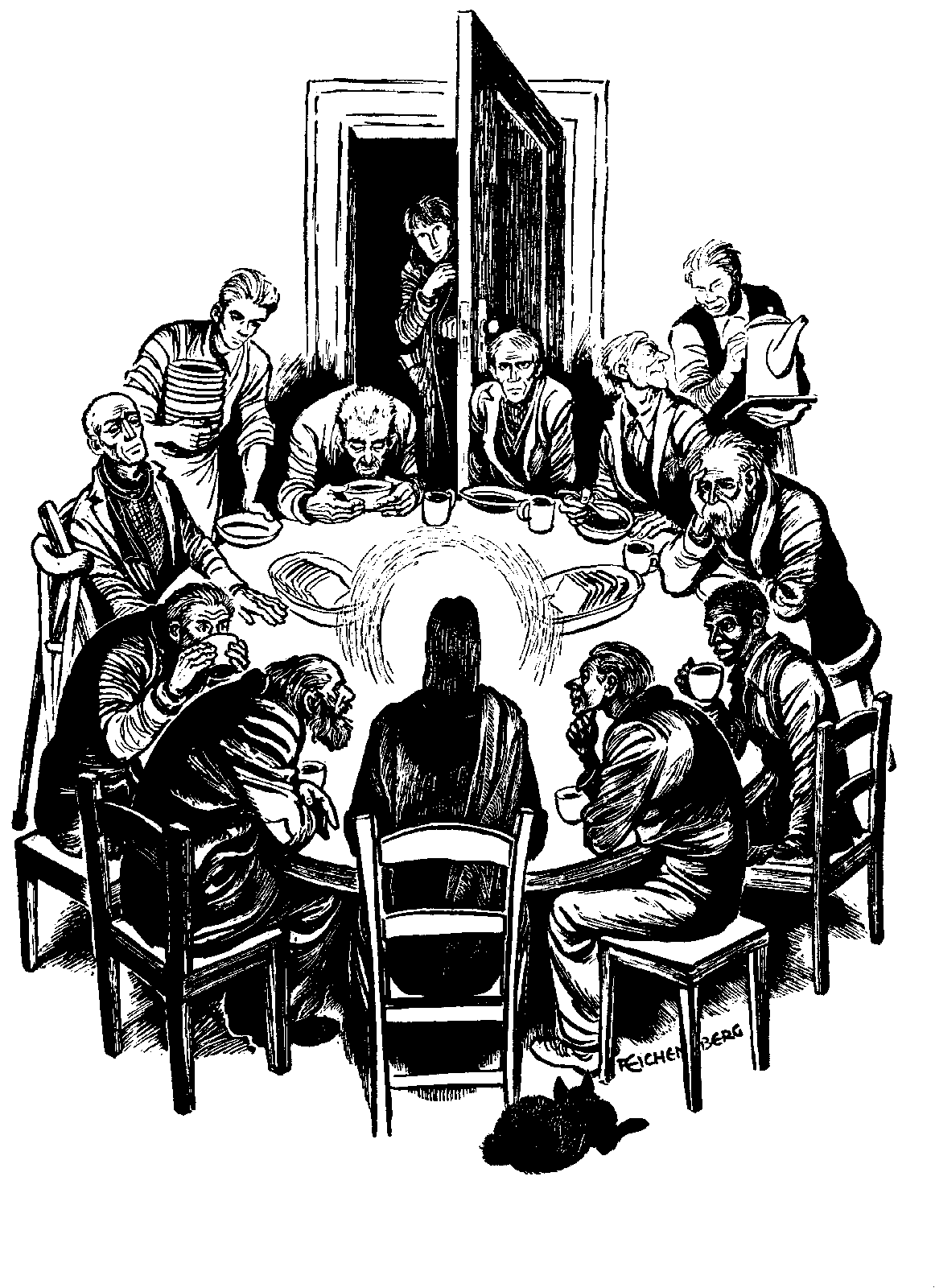
For the last eight years at Ilford Salvation Army we have run a night shelter over the winter season. This typically runs from the first week of December to the first week of March, sleeping 28 people every night in the upstairs hall of our church building in Clements Road. For the last couple of years, we have been working on an initiative called Project Malachi to develop a ‘pop up hostel’ using a modular, re-deployable building (like shipping containers). We are excited that manufacturing of the units has begun, and the building is scheduled to be completed later in the year. However, we were hoping it was going to be completed sooner but in light of some delays we pledged to keep the shelter open until people move in to Malachi. This was a big commitment for the church and volunteer team.
One of the unexpected blessings of running the shelter on an extended basis this year has been that it has been open over Easter. Because the shelter is typically open over Christmas, we make natural associations between that festival, the homeless Jesus and the shelter ministry. This year, we had the opportunity to be more closely attentive to the grounding of this work in the Easter story. An example of this was on Maundy Thursday.
We had scheduled to watch the Passion of the Christ followed by a Love Feast. However, the shelter was slightly low in numbers for volunteers at the shelter due to some having commitments at their own churches. With a low turnout to watch the film, we thought that a better use of our time would be to help with the shelter, and then gather later for the Love Feast. Before opening shelter, we gathered for prayer and shared a reading from John 13 and the new commandment ‘that you love one another. Just as I have loved you, you also should love one another. By this everyone will know that you are my disciples, if you have love for one another.’ This also prefigured the Love Feast later in the evening.
The evening was a little bit chaotic, with some people ‘under the influence’ but the team embodied that new command with meekness and strength. We fed the hungry – people desperate to eat the food (which had been kindly prepared by Muslim colleagues offsite and then delivered to the shelter); we gave drink to the thirsty – teas, coffees and juice quickly consumed; we clothed the naked – one of the men was needing a new pair of work boots after they had been stolen from where he stored them; we welcomed the stranger – a Salvationist from Ghana visited the Corps for the first time; we visited the imprisoned – one of the guests was discharged to shelter inappropriately by probation services (an issue we are having to battle hard to resolve); and we visited the sick – late in the evening, a lady was brought to us because ‘The Salvation Army will know how to help” – she was suffering with dementia and was found wandering in a park after ‘escaping’ from her supervised accommodation. All the members of the team worked together to help everyone who was in need. It was an interesting evening but, nevertheless, a blessed one!
At around 9:30pm, once things had quietened down a bit, some of us – both volunteers and guests – gathered in the main hall for the Love Feast. As we sat together, readings were shared from Scripture to help us focus on the love that God has for us, and our own need to be able to love more, and better. As we ate and drank, I found my attention drawn to my own vulnerability and frail human condition, and the way that I embody the conditions found in Matthew 25:31-46, inasmuch as they were visible in people who would be sleeping in the shelter that evening.
Without diminishing the particularity of my, or their, situation, our common humanity – humanity common with Christ, was realised yet again: “I give you a new commandment, that you love one another. Just as I have loved you, you also should love one another.”
It is in this sense that we find the work of the shelter, and any other enactment of embodied compassion – to be a practice of discipleship. Through our simple desire to be with and imitate Him, we are shaped more and more into His likeness.


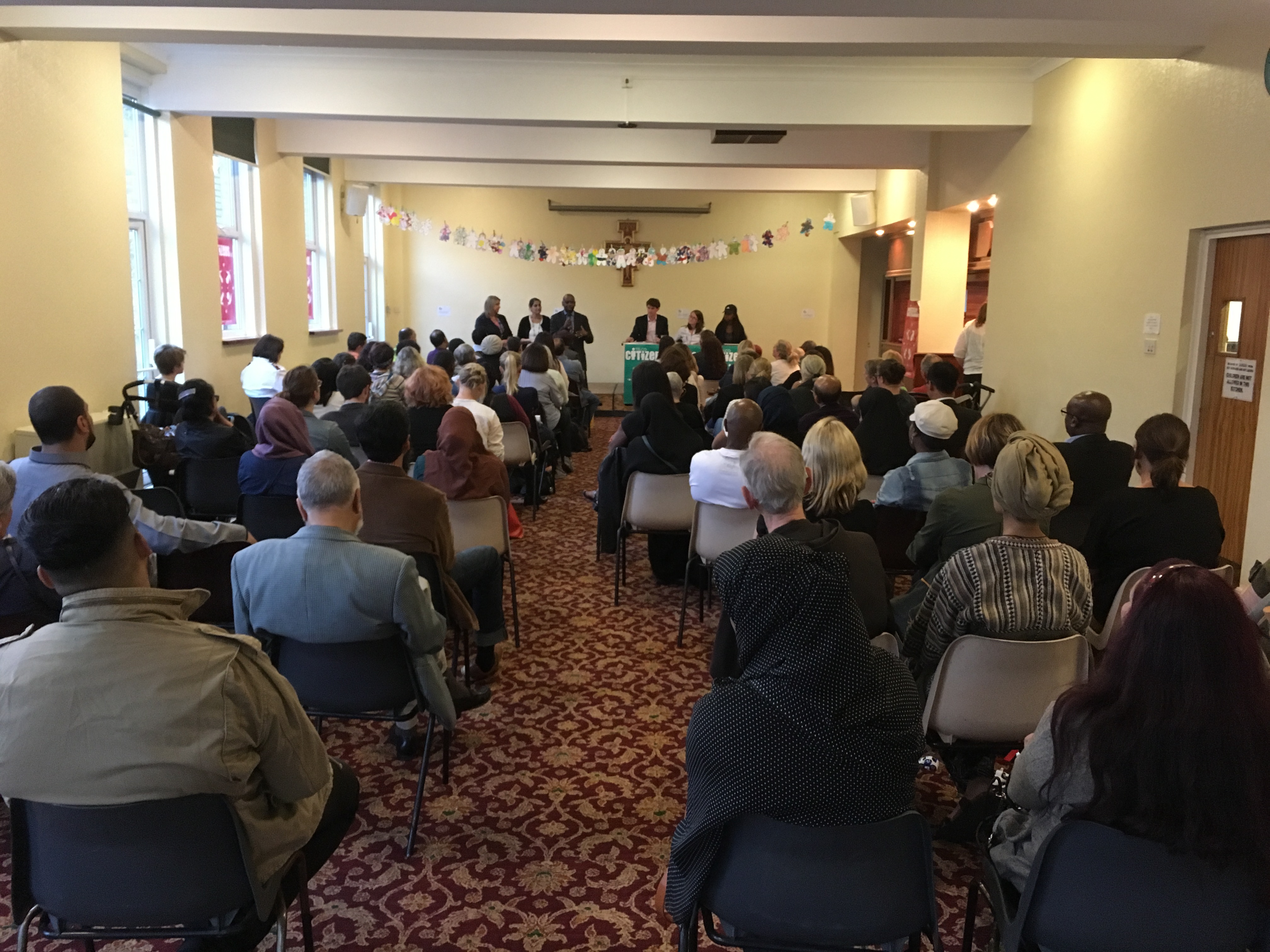

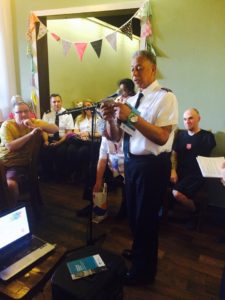 In terms of theological, devotional and motivational material urging us forward in the fight we have never had it so good. The biblical mandate for action is being preached with new fervour in the light of austerity, political upheaval and the refugee crisis. Resources are plentiful – campaign material regularly finds its way into our letterbox, email inbox and social media feeds. Dutifully we follow the instructions to pray, fundraise, get informed and click on the link to another petition website. Online activity in the cause of social change has led to the coining of a new word – ‘clicktivism’. Apparently we’re clicking like we’ve never clicked before. Yet beneath it all comes that nagging question – is any of this really making a difference? It all feels so detached. There’s surely more to justice-seeking than this.
In terms of theological, devotional and motivational material urging us forward in the fight we have never had it so good. The biblical mandate for action is being preached with new fervour in the light of austerity, political upheaval and the refugee crisis. Resources are plentiful – campaign material regularly finds its way into our letterbox, email inbox and social media feeds. Dutifully we follow the instructions to pray, fundraise, get informed and click on the link to another petition website. Online activity in the cause of social change has led to the coining of a new word – ‘clicktivism’. Apparently we’re clicking like we’ve never clicked before. Yet beneath it all comes that nagging question – is any of this really making a difference? It all feels so detached. There’s surely more to justice-seeking than this.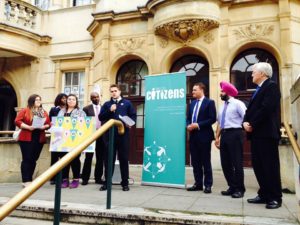 The beginning of justice-seeking is neither an action nor a programme. As an officer once reminded me: ‘We don’t do social justice – we live justly.’ In Salvation Army theology it springs from our holiness teaching, where the inner life of a believer, orientated around a relationship with God, spills over into public life. Faith may be personal but it’s never private. The inner working of our hearts is manifested in hundreds of actions and decisions we make every day. Living a just life begins with how we treat others, who we include, how we use our wealth and time. This applies to those closest to us, neighbours and work colleagues, our corps family and, by extension, the whole of humanity. The rather wonderful truth I’ve discovered is that the more I’ve chased personal holiness the more compelled I’ve been to seek a just world and the more justice-seeking I’ve engaged with the more convicted I’ve been about personal transformation.
The beginning of justice-seeking is neither an action nor a programme. As an officer once reminded me: ‘We don’t do social justice – we live justly.’ In Salvation Army theology it springs from our holiness teaching, where the inner life of a believer, orientated around a relationship with God, spills over into public life. Faith may be personal but it’s never private. The inner working of our hearts is manifested in hundreds of actions and decisions we make every day. Living a just life begins with how we treat others, who we include, how we use our wealth and time. This applies to those closest to us, neighbours and work colleagues, our corps family and, by extension, the whole of humanity. The rather wonderful truth I’ve discovered is that the more I’ve chased personal holiness the more compelled I’ve been to seek a just world and the more justice-seeking I’ve engaged with the more convicted I’ve been about personal transformation.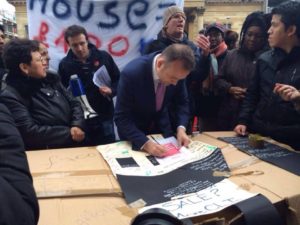 While justice begins with God, it clearly involves people. In the Exodus story the groans of the Israelite slaves rise up before God and initiate a social justice movement (Exodus 2:23–25). In today’s world we constantly hear the groans for ourselves – the low-paid worker at the food bank, the refugee, the homeless and the discriminated against. Most of us long to end such suffering. The uncomfortable truth, however, is that real justice-seeking compels us to move to the edges and experience first-hand the sufferings of others before we can act. There really is no other way. Of course when we get there we discover God is well ahead of us.
While justice begins with God, it clearly involves people. In the Exodus story the groans of the Israelite slaves rise up before God and initiate a social justice movement (Exodus 2:23–25). In today’s world we constantly hear the groans for ourselves – the low-paid worker at the food bank, the refugee, the homeless and the discriminated against. Most of us long to end such suffering. The uncomfortable truth, however, is that real justice-seeking compels us to move to the edges and experience first-hand the sufferings of others before we can act. There really is no other way. Of course when we get there we discover God is well ahead of us.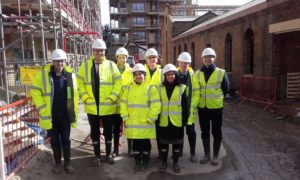 Once personally involved in the sufferings of others, it is tempting to offer charity and stop there. We meet the need, bandage the wound and move on. Most likely people will call us saints.
Once personally involved in the sufferings of others, it is tempting to offer charity and stop there. We meet the need, bandage the wound and move on. Most likely people will call us saints.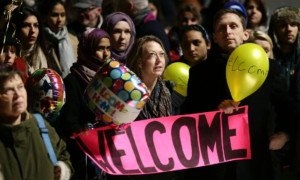 The final stage is to move from a protest voice on the margins into the corridors of power, where decisions are made. Forcing your way into this space can happen only when we organise ourselves to be powerful enough for decision-makers to take notice. This is the work of politics – not party politics – but community-based, people politics. And this is where corps and centres come into their own. After all, we know our communities and, in most cases, we have been a constant presence for generations. Almost every local expression is connecting directly with those who suffer injustice and, crucially, we are collectives who exist to transform the world! In a society where institutional
The final stage is to move from a protest voice on the margins into the corridors of power, where decisions are made. Forcing your way into this space can happen only when we organise ourselves to be powerful enough for decision-makers to take notice. This is the work of politics – not party politics – but community-based, people politics. And this is where corps and centres come into their own. After all, we know our communities and, in most cases, we have been a constant presence for generations. Almost every local expression is connecting directly with those who suffer injustice and, crucially, we are collectives who exist to transform the world! In a society where institutional